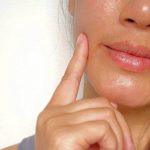Understanding the Challenge: Dry Skin Woes

Dry skin is a global concern, affecting millions of people worldwide. Whether it’s due to environmental factors, genetics, or lifestyle choices, the discomfort and irritation it brings are universal. The good news is that combating dry skin is within your reach.
Nourishing Your Skin from the Inside Out
One of the most effective ways to combat dry skin is by starting from within. Your skin’s outer layer, the epidermis, acts as a barrier to protect against external elements. When this barrier is compromised, moisture loss occurs, leading to dryness and irritation. To fortify this barrier, focus on hydration from within.
First and foremost, it’s crucial to maintain adequate hydration by drinking enough water daily. Hydration plays a pivotal role in skin health, as it replenishes moisture levels and supports the skin’s natural functions. Additionally, incorporating hydrating foods into your diet, such as fruits, vegetables, and foods rich in omega-3 fatty acids, can further boost your skin’s health from the inside out.
Moreover, consider incorporating supplements like fish or flaxseed, rich in omega-3 fatty acids and known for their moisturizing properties. These supplements can help improve skin hydration and overall texture when taken regularly.

External Solutions for Dry Skin Relief
In addition to nourishing your skin from within, it’s crucial to implement a robust skincare routine to address dryness externally. Choosing the right products and ingredients can significantly restore moisture and enhance your skin’s barrier function.
Start by selecting gentle cleansers that won’t strip your skin of its natural oils. Look for hydrating ingredients like hyaluronic acid, glycerin, and ceramides, which help attract and retain moisture. Follow up with a rich moisturizer formulated specifically for dry skin. Opt for products that contain emollients like shea butter, coconut oil, or jojoba oil to provide a protective barrier and prevent moisture loss throughout the day.
Regular exfoliation is also essential for removing dead skin cells and allowing moisturizers to penetrate more effectively. However, be mindful not to over-exfoliate, as this can exacerbate dryness and irritation. Limit exfoliation to once or twice a week and choose gentle exfoliants like alpha hydroxy acids (AHAs) or beta hydroxy acids (BHAs).
Incorporating hydrating masks and serums into your skincare routine can provide an extra moisture boost when needed. Look for products containing ingredients like hyaluronic acid, aloe vera, and vitamin E to soothe and hydrate parched skin.




























 Discover Beauty From Within
Discover Beauty From Within